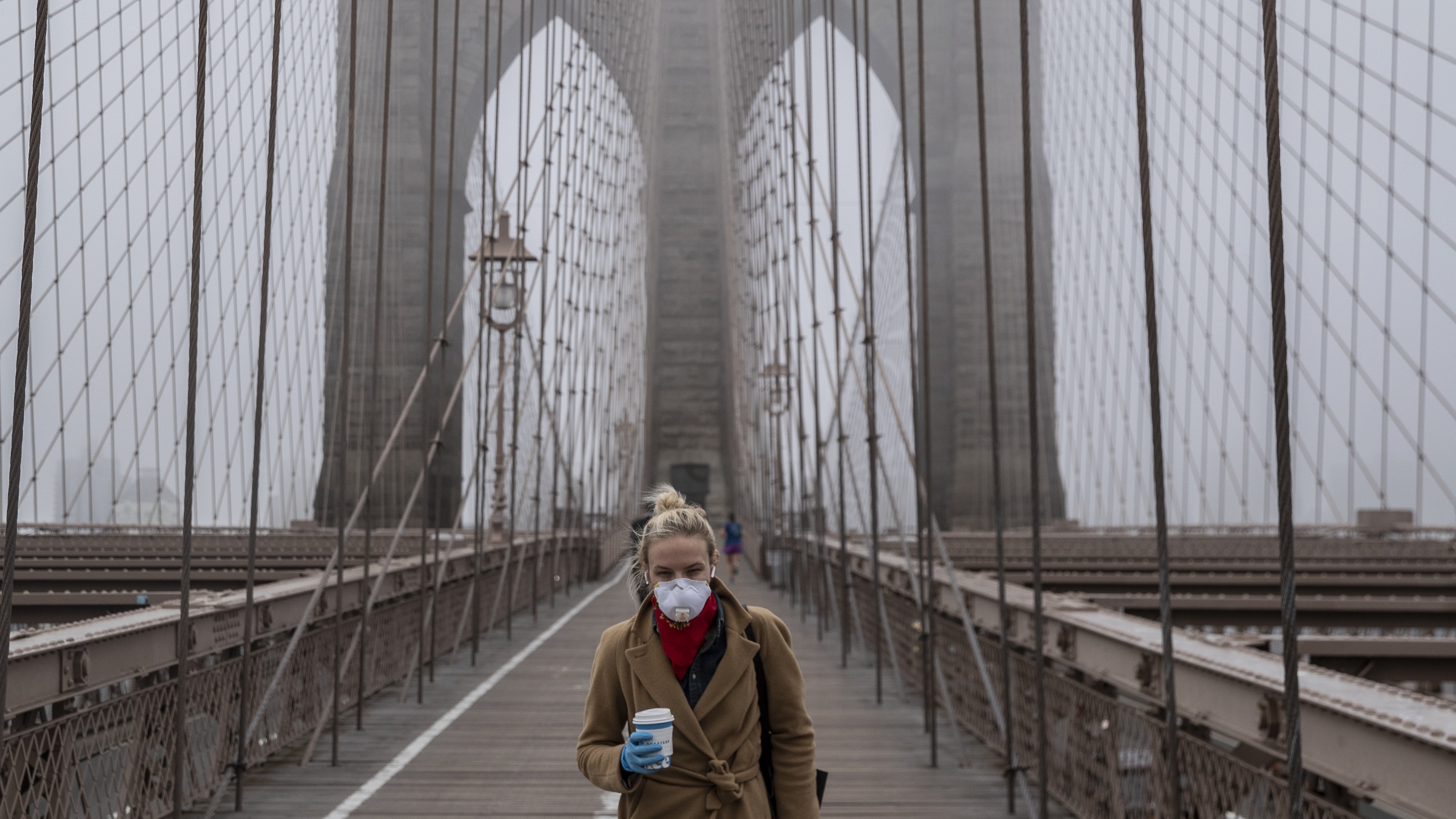The countries best and worst prepared for another pandemic
Rich nations dominate list of those best placed to handle a future health crisis

A free daily email with the biggest news stories of the day – and the best features from TheWeek.com
You are now subscribed
Your newsletter sign-up was successful
The US would be the best prepared country in the world in the event of a future epidemic or pandemic, according to a new report, despite recording more deaths than any other nation since the outbreak of Covid-19.
The 2021 Global Health Security Index (GHSI) found that the US, Australia and Finland would be the most able to respond to another health crisis. However, all three countries saw their overall index score drop when compared with their 2019 preparedness.
The UK, which has so far reported 145,987 deaths within 28 days of a positive Covid test, came in seventh place but also saw its overall score slip from its 2019 figure.
The Week
Escape your echo chamber. Get the facts behind the news, plus analysis from multiple perspectives.

Sign up for The Week's Free Newsletters
From our morning news briefing to a weekly Good News Newsletter, get the best of The Week delivered directly to your inbox.
From our morning news briefing to a weekly Good News Newsletter, get the best of The Week delivered directly to your inbox.
Richer countries dominated the upper end of the rankings, with Ethiopia – the highest ranking low-income country – coming in 87th place in the list of 195 countries.
The list is compiled by assessing a country’s ability to prevent, detect and respond to a health crisis, according to the GHSI. Existing healthcare services, funding for boosting provisions and the vulnerability of a country to future threats are also taken into account.
The report found that while “many countries were able to quickly develop capacities to address Covid-19, all countries remain dangerously unprepared for meeting future epidemic and pandemic threats”.
“Most countries, including high-income nations, have not made dedicated financial investments in strengthening epidemic or pandemic preparedness.” Countries are also “not prepared to prevent globally catastrophic biological events that could cause damage on a larger scale than Covid-19”, it added.
A free daily email with the biggest news stories of the day – and the best features from TheWeek.com
Individual nations should “prioritise the building and maintaining of health security capacities in national budgets” to avoid future crises, the report said.
Global organisations, including the World Health Organization and UN, must also “identify countries that may benefit most from additional support to improve their readiness for future disease emergencies”.
Compiled by the Nuclear Threat Initiative, a Washington-based non-profit global security group, and the Johns Hopkins Center for Health Security, the report found that “vast wealth and scientific capability” was the key determining factor in how prepared a country is for another health emergency, The Washington Post said.
“Public confidence in government” was also found to be a vital element of any epidemic or pandemic response, the paper added, a factor that explains “why other countries that received top marks in 2019 also responded poorly during the pandemic”.
Tom Frieden, a former director of the US Centers for Disease Control and Prevention, told the paper that the report’s bottom line was that “no country is adequately prepared” for future outbreaks, adding: “There’s a need for urgent action to address that.”
10 most prepared countries (index score out of 100)
- US (75.9)
- Australia (71.1)
- Finland (70.9)
- Canada (69.8)
- Thailand (68.2)
- Slovenia (67.8)
- UK (67.2)
- Germany (65.5)
- South Korea (65.4)
- Sweden (64.9)
10 least prepared countries
- Somalia (16)
- North Korea (16.1) and Yemen (16.1)
- Syria (16.7)
- Equatorial Guinea (17.4)
- Nauru (18)
- Central African Republic (18.6)
- Tuvalu (20)
- Niue (20.1)
- Venezuela (20.9)
- South Sudan (21.3)
The full global rankings can be found here on the Global Health Security Index website.
-
 What to know before filing your own taxes for the first time
What to know before filing your own taxes for the first timethe explainer Tackle this financial milestone with confidence
-
 The biggest box office flops of the 21st century
The biggest box office flops of the 21st centuryin depth Unnecessary remakes and turgid, expensive CGI-fests highlight this list of these most notorious box-office losers
-
 The 10 most infamous abductions in modern history
The 10 most infamous abductions in modern historyin depth The taking of Savannah Guthrie’s mother, Nancy, is the latest in a long string of high-profile kidnappings
-
 Epstein files topple law CEO, roil UK government
Epstein files topple law CEO, roil UK governmentSpeed Read Peter Mandelson, Britain’s former ambassador to the US, is caught up in the scandal
-
 Iran and US prepare to meet after skirmishes
Iran and US prepare to meet after skirmishesSpeed Read The incident comes amid heightened tensions in the Middle East
-
 Israel retrieves final hostage’s body from Gaza
Israel retrieves final hostage’s body from GazaSpeed Read The 24-year-old police officer was killed during the initial Hamas attack
-
 China’s Xi targets top general in growing purge
China’s Xi targets top general in growing purgeSpeed Read Zhang Youxia is being investigated over ‘grave violations’ of the law
-
 Panama and Canada are negotiating over a crucial copper mine
Panama and Canada are negotiating over a crucial copper mineIn the Spotlight Panama is set to make a final decision on the mine this summer
-
 Why Greenland’s natural resources are nearly impossible to mine
Why Greenland’s natural resources are nearly impossible to mineThe Explainer The country’s natural landscape makes the task extremely difficult
-
 Iran cuts internet as protests escalate
Iran cuts internet as protests escalateSpeed Reada Government buildings across the country have been set on fire
-
 US nabs ‘shadow’ tanker claimed by Russia
US nabs ‘shadow’ tanker claimed by RussiaSpeed Read The ship was one of two vessels seized by the US military